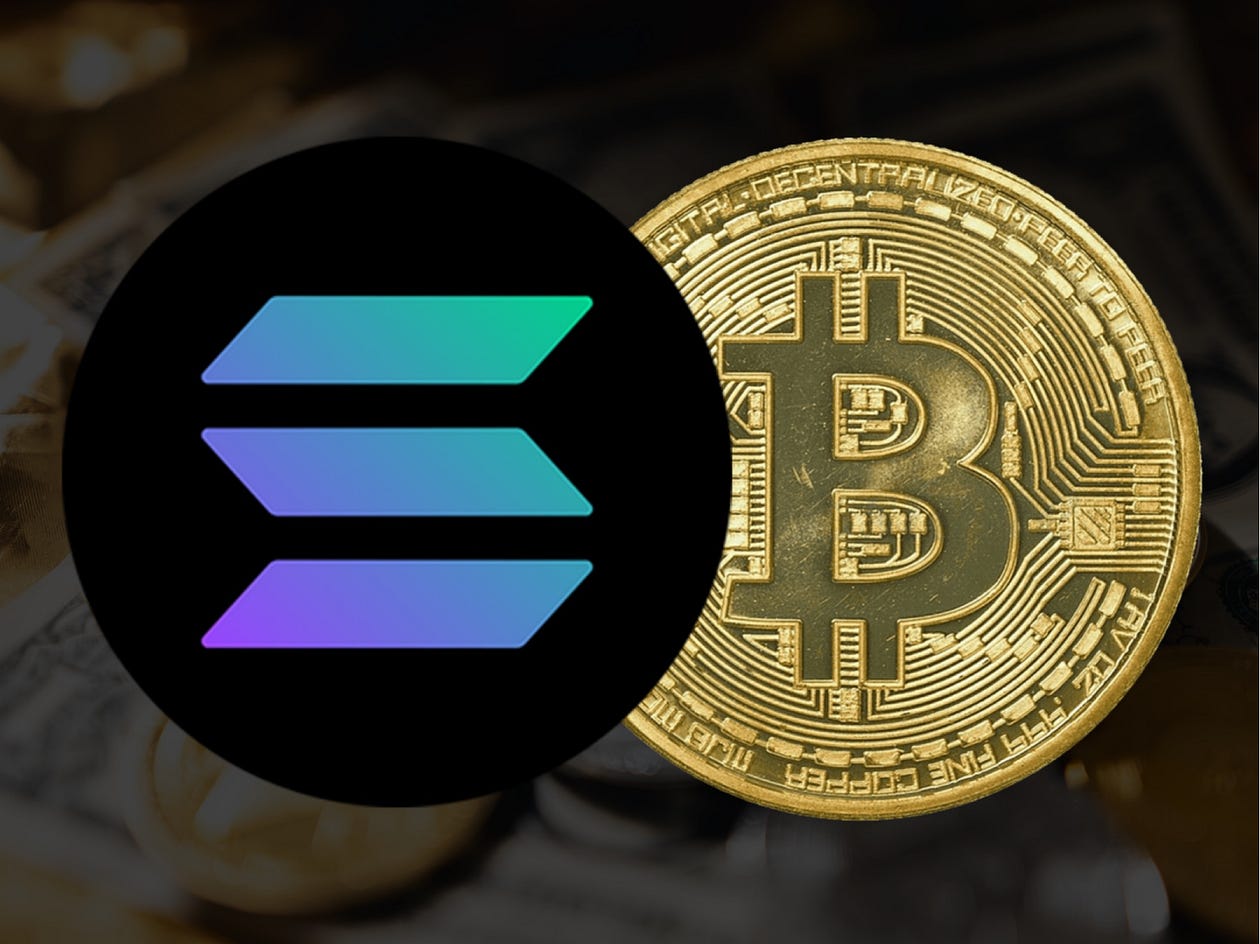Real estate has long been regarded as one of the safest and most reliable asset classes for preserving and growing wealth. However, as the world becomes more digitized, and economic realities continue to evolve, many real estate investors are starting to turn their gaze towards Bitcoin as an alternative or complementary investment. This shift is driven by a combination of market dynamics, technological advancements, and the recognition that Bitcoin presents a unique opportunity for diversifying portfolios in ways that traditional real estate cannot.
Here’s why real estate investors are starting to explore Bitcoin and why it’s becoming an essential asset on their radar.
 Bitcoin and Real Estate
Bitcoin and Real EstateThesis: Bitcoin as a Complementary Asset to Real Estate
While real estate offers a tangible and historically stable store of value, Bitcoin provides a unique set of advantages that complement the inherent strengths of property ownership. In particular, Bitcoin’s decentralization, portability, and inflation resistance make it an attractive asset in a world where capital mobility, economic instability, and inflationary risks are becoming more pronounced.
Real estate investors are known for seeking out stable, appreciating assets with the potential to generate cash flow and preserve value. Yet, Bitcoin offers something real estate cannot — borderless, digital value storage that is not subject to local market risks, government interference, or illiquidity.
Why Real Estate Investors Are Beginning to Look at Bitcoin:
1. Inflation Hedge and Scarcity
One of the most compelling reasons real estate investors are beginning to diversify into Bitcoin is the growing concern over inflation and currency devaluation. Traditionally, real estate has been viewed as an excellent hedge against inflation, as property values tend to rise over time, along with rents. However, Bitcoin offers a similar — and in some ways, superior — hedge against inflation.
• Fixed Supply: Unlike real estate, which can be subject to market bubbles and fluctuations in supply (new developments, zoning changes, etc.), Bitcoin has a fixed supply of 21 million coins. This creates a scarcity similar to that of prime real estate but with the added advantage that the total supply is capped, guaranteed, and not influenced by any central authority.
• Increasing Demand: As more institutions, retail investors, and even governments begin to adopt Bitcoin, the demand for this limited supply will increase, driving up its value. Investors who diversify early stand to benefit from this rising demand, just as they would from purchasing real estate in a high-growth area.
Example: In periods of high inflation, property values may appreciate, but Bitcoin’s ability to function as a truly global store of value with no centralized control means it can potentially outpace inflation more effectively than real estate.
2. Portability and Liquidity
Real estate investors are accustomed to long holding periods and illiquidity — selling a property can take months and often involves high transaction costs such as agent commissions, closing fees, and taxes. Bitcoin, on the other hand, offers instant liquidity on a global scale. Investors can buy, sell, or transfer Bitcoin 24/7, with transactions settling in minutes rather than months.
• No Geographic Constraints: Real estate is inherently tied to specific locations and local market conditions. Bitcoin, as a decentralized and borderless asset, is not affected by the health of local economies, political instability, or geographic factors. This opens up the possibility for real estate investors to diversify globally in ways that traditional property markets cannot match.
• Low Transaction Costs: Unlike real estate transactions, which can involve significant costs and time, Bitcoin transactions are relatively inexpensive and can be completed with just an internet connection, providing flexibility and control over capital that real estate investors are not accustomed to.
Example: An investor looking to quickly exit a real estate position in a declining market might struggle to find buyers or face significant losses due to transaction fees. With Bitcoin, they can instantly convert their holdings to cash or other assets, preserving wealth during volatile market conditions.
3. A Hedge Against Political and Geopolitical Risks
Real estate investors, especially those investing internationally, are exposed to political risks. Governments can impose heavy property taxes, expropriate land, or impose capital controls that make it difficult to move funds out of a country. Bitcoin, being decentralized, is immune to these risks.
• Censorship-Resistant: Governments can’t seize Bitcoin or impose restrictions on it as they can with property. This makes Bitcoin a powerful tool for wealth preservation, especially in countries with unstable governments or currency crises.
• Global Reach: Real estate investors may have to deal with different laws, regulations, and taxes depending on where their property is located. Bitcoin is a truly global asset, not bound by borders or jurisdictions. This makes it especially appealing to high-net-worth investors looking to diversify their wealth across geographies without the headache of dealing with local regulations.
Example: In countries with unstable governments or uncertain property rights, real estate investors might face property seizures or increased taxes. Bitcoin provides a way to store wealth securely outside of any one country’s control, providing peace of mind for investors.
4. Digital Transformation and Institutional Adoption
The world is becoming increasingly digital, and wealth is following suit. Institutional adoption of Bitcoin has been on the rise, with companies like Tesla, MicroStrategy, and Square adding Bitcoin to their balance sheets. Even banks like JPMorgan and Goldman Sachs are offering Bitcoin services to their clients.
• Early Mover Advantage: Real estate investors who adopt Bitcoin now can benefit from the early-mover advantage, similar to those who purchased prime real estate in booming cities before prices skyrocketed. As more institutions and high-net-worth individuals allocate capital to Bitcoin, its value as a digital asset will likely continue to grow.
• Complementing Real Estate: Bitcoin doesn’t need to replace real estate; it can complement it. By allocating a portion of their portfolio to Bitcoin, real estate investors can gain exposure to a fast-growing, digital asset class while still benefiting from the long-term stability of their property holdings.
Example: A real estate investor who allocated just a small percentage of their portfolio to Bitcoin in 2013 has likely seen massive returns compared to traditional real estate investments. As institutional interest continues to grow, those who diversify now can capitalize on Bitcoin’s increasing mainstream adoption.
5. Protection Against Real Estate Market Cycles
Real estate markets, like any asset class, go through cycles of boom and bust. The 2008 financial crisis was a stark reminder of how fragile real estate investments can be in the face of economic turmoil. Bitcoin, while volatile, operates independently of traditional financial markets, providing a potential hedge during real estate downturns.
• Non-Correlated Asset: Bitcoin’s performance is largely independent of traditional markets. This makes it an excellent asset for diversification, especially for real estate investors who want to protect themselves against market downturns or financial crises that impact the property market.
Example: If a real estate bubble bursts or the housing market experiences a downturn, Bitcoin’s performance as a non-correlated asset could provide a cushion, protecting wealth during market turbulence.
Why Real Estate Investors Need Bitcoin on Your Radar
Real estate investors are known for their strategic, long-term approach to building and preserving wealth. However, as the global economy becomes more digital, decentralized, and unpredictable, Bitcoin offers unique advantages that complement the strengths of real estate while addressing some of its key limitations.
By diversifying into Bitcoin, real estate investors can:
• Hedge against inflation with a mathematically guaranteed scarce asset.
• Mitigate geopolitical and political risks by holding an asset immune to government control.
• Gain liquidity and flexibility that real estate investments cannot offer.
• Take advantage of digital transformation and participate in the growth of the world’s first truly global digital store of value.
In a world where real estate and traditional assets are increasingly subject to government intervention, inflationary pressures, and illiquidity, Bitcoin provides a new frontier for wealth preservation. For savvy real estate investors, it’s time to start taking Bitcoin seriously as part of a diversified, forward-thinking investment strategy.
Why Real Estate Investors Will Soon Start to Diversify into Bitcoin: A Strategic Shift was originally published in The Capital on Medium, where people are continuing the conversation by highlighting and responding to this story.

 2 weeks ago
20
2 weeks ago
20









 English (US) ·
English (US) ·